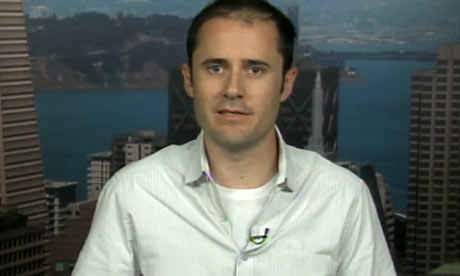Thongs on the internet: the next big internet thing
 Around this time last year I was asked by Savas Onemli, the editor of Digital Age in Turkey, what I thought the big thing in 2013 was going to be. I said Big Data. Phew! So recently I was asking myself the question, what might be the big thing of 2014. I think Big Data is still going to be pretty big, but I think the new thing we will be talking about (which is closely linked to Big Data) is The Internet of Things.
Around this time last year I was asked by Savas Onemli, the editor of Digital Age in Turkey, what I thought the big thing in 2013 was going to be. I said Big Data. Phew! So recently I was asking myself the question, what might be the big thing of 2014. I think Big Data is still going to be pretty big, but I think the new thing we will be talking about (which is closely linked to Big Data) is The Internet of Things.
I have just got back from Brussels where I was taking part in a panel discussion on Big Data at the annual get together of the European Association of Communications Agencies (EACA). One of the issues I raised was that the amount of data out there was about to explode on account of the fact that things, not just people, were now becoming connected to it. In the Big Data context I called this ‘the kettles that spy on your life’ – for this, essentially, is what happens when we connect things to the internet: they become spies, either on your life specifically or on life in general.
I was first introduced to this idea about 18 months ago when I saw a presentation by Andy Hobsbawn at the Social Media Influence conference. Andy was an enthusiastic supporter of the idea and one of the possibilities he suggested was what might happen when jeans, or other items of clothing, acquire an internet identity. As soon as he said this the thought that flashed into my mind, however, was not ‘how intriguing’, it was ‘oh, my God’. The whole thing seemed to be a terrifying prospect, not just the ability of these things to become spies but also the multiplicity of issues that might emerge when we start to give things independent identities and personalities that interact with our own. Does this mean we will have to start giving things rights for example? We are having enough difficulties dealing with issues like our own rights to privacy and data protection in relation to Big Data as it is (one of the issues also discussed at the EACA event), let alone dealing with our items of clothing – underwear, data and privacy: welcome to the Internet of Thongs.
Joking aside, the fact that things will join us on the internet as producers and quite possibly consumers of data clearly re-inforces what I already believe, which is that we are not going to solve this privacy and data protection thing by looking at initial sources of the data, because otherwise we will end up giving rights to our underwear and asking its consent. The answer has to lie in controlling how data is used, not by controlling the way in which it is sourced.
However, the reason I now know this will be the Big Thing of 2014 is that I have just heard a piece on it on the BBC’s World at One programme. It was approached in the same way the BBC and Radio 4 always approach these things which is to damn it with frivolity. “Goodness me, a rubbish bin connected to the internet, whatever will these (silly) people think of next” was the general tone of the piece. “Goodness me, a computer that everyone can own, whatever will these (silly) people think of next”. Whenever the BBC (in fact traditional mainstream media in general) doles out this sort of treatment – you can be sure they are talking about the next big thing.


 Last night I watched the
Last night I watched the 